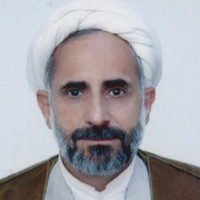The Evolution of the Benefit Writing; al-Fawaed al-Rejaliyah in Shi'ite Heritage Case Study
Narrators of tradition benefits in Twelvers circles as a writing style among the writing methods that have been cast on most of the sciences, have a distinct and different place. Narrators of tradition benefits in Twelvers circles as a writing style among the writing methods that have been cast on most of the sciences, have a distinct place. In this research, by using the descriptive method in addition to stating the nature and history of benefits and a reference to authoring styles, to the types, application and background of the emergence of narrators of traditions benefits that show the effectiveness of the data and findings which have helped to develop narrators of tradition knowledge and formulate its principles and rules, are discussed. Mentioning the works of scholars in the field of benefit writing and description and analysis of propositions, data and information of the mentioned works with a cognitive approach is the author's strategy in the research. Among the achievements of the present research, we can point out the abundance of narrators of tradition writing and its evolution compared to other authoring styles in Islamic knowledge and its emergence before the Helleh School.
-
The Study of al-Ḥākim al-Nīshābūrī's Virtue Writing on Lady Fāṭimah (AS) Based on Critical Discourse Analysis Theory
Sayyid Reza Mahdavi, Morteza Iravani Najafi *, Hasan Naqizadeh
Hadith Studies and Researches, Winter 2025 -
A Critical Review of the Interpretive Rules in Ibn ‘Uthaymīn’s Interpretive Method
Sayyed Mahdi Elmi Husayni, Hasan Naqizadeh *, Muhammadhasan Rostami
Qur'anic Researches, -
Quranic Re-reading of "Men's Being Qawwām over Women" in the Verse 34 of Surah Al-Nisāʾ
Marjaneh Fathi Torghabeh, Abbas Esmaeelizadeh *,
Journal of Quran and Hadith Studies, -
Historical Approach to the Qur'an; Examining the Common Ground of the Viewpoints of Neo-Religious Thinkers Concerning the Understanding and Interpretation of the Holy Qur'an
Marjaneh Fathi Torghabeh, Abbas Isma’Ilizadeh *, Gholamreza Ra’Isian
Qur'anic Researches,



